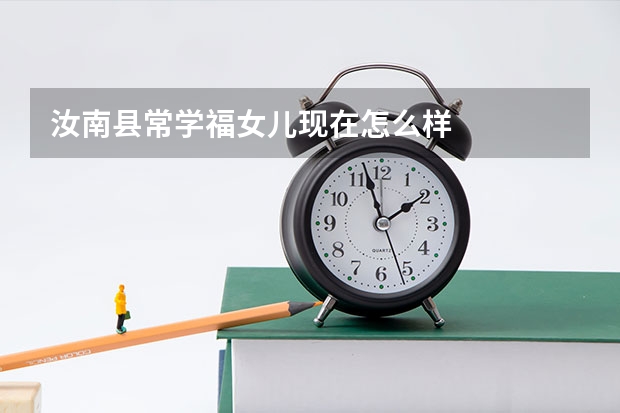高考英语阅读理解训练书2024 高考英语阅读理解训练题及答案
2024-03-17 22:00:57 | 917教育网
本文目录一览:

求一本比较难的高考英语阅读理解练习书
高中语文合集百度网盘下载
链接:
?pwd=1234提取码:1234
简介:高中语文优质资料下载,包括:试题试卷、课件、教材、视频、各大名师网校合集。

高考英语阅读理解训练题及答案
高考英语阅读理解训练题及答案
高考英语阅读推理判断要求考生能通过文章表面文字信息去推测文章隐含的意思,要求考生对文章的情节发展,以及作者的.态度、意图等做出合乎逻辑的推理和判断。为了帮助大家备考,我分享了一些英语阅读理解题,以供大家练习,希望能对大家有所帮助! 917教育网
英语阅读理解题【1】
A very strict officer was talking to some new soldiers whom he had to train. He had never seen them before, so began, “My name is Stone, and I’m even harder than stone, so do what I tell you or there’ll be trouble. Don’t try any tricks (诡计) with me, and then we’ll get on well together.”
Then he went to each soldier one after the other and asked him his name, “Speak loudly so that everyone can hear you clearly,”he said, “and don’t forget to call me ‘sir’.”
Each soldier told him name, until he came to the last one. This man remained silent. and so Captain Stone shouted at him, “when I ask you a question, answer it! I’ll ask you again: What’s your name, soldier?”
The soldier was very unhappy, but at last he replied, “My name’s Stonebreaker, sir,” he said nervously (紧张地).
1. The officer was strict
A. because the soldiers were new. B. with any of his soldiers, new or old.
C. because he was named Stone. D. only when he was before soldiers.
2. According to what the officer said,
A. obeying his orders would sometimes bring no trouble.
B. trouble would come if anybody made tricks.
C. he always got on well with his soldiers.
D. he often had trouble with his soldiers.
3. The last soldier remained silent because
A. he didn’t like the way the officer spoke to them.
B. he wanted to see what would happen if he disobeyed his order.
C. the question was difficult for him to answer.
D. he was afraid the officer would be angry when he heard his name.
4. According to the officer, how to answer the question,“How old are you ?”
A. (sadly)Twenty, sir. B. (clearly)Twenty.
C. (loudly)Twenty, sir D. (quickly)Ten years younger than you, sir
5. Which is the best title (题目) for the passage?
A. A Clever Answer B. A Terrible Answer
C. A Sorry Answer D. A Strange Answer
英语阅读理解题【2】
Paul couldn’t sleep last night. He woke up early and sat up, and then he lay down again. He felt terrible. “I must be sick,” he thought. “but I must study for that test.”
He got up and looked for his history notebook. He finally found it under a pile of clothes on a chair. He went over his history notes, but he couldn’t remember any of the facts in the notes. “What shall I do?” he thought. He felt terrible.
Just then Paul’s telephone rang. He put down his notebook and picked up the telephone.
“Good morning,” Jack’s voice said, “You must be wrong about that test.”
“What do you mean?” Paul asked weakly.
“We’re not going to have the test today.” Jack said. “I wrote down the date in my notebook. The test will be next Wednesday; it isn’t today. How do you feel this morning?”
“Fine,” said Paul. “Just fine!” Suddenly he really felt fine.
1. Paul felt uneasy because he
A. was seriously ill. B. was too tired.
C. was worried about the coming test. D. couldn’t find his history notebook.
2. It seemed that Paul
A. was good at history. B. liked to study history.
C. lost interest in history. D. was ready for the history test.
3. What made Paul feel fine at once?
A. The telephone call. B. the coming test.
C. Jack’s notebook D. The fact that the test was not to be given that day.
4. “How do you feel this morning?” From this question we can see Jack
A. knew Paul. B. knew Paul very well.
C. wanted to help Paul with his history. D. would lend Paul his notebook..
5. We can guess from the passage that
A. Jack was as poor at history as Paul. B. Jack was as good at history as Paul.
C. Jack was better at history than Paul. D. Jack was poorer at history than Paul.
英语阅读理解题【3】
The Antarctica is a actually a desert. It is the only continent on the earth without a river or a lake.
The Antarctica is all ice all year round. The warmest temperature ever recorded (所记录的) there is zero, at the South Pole. Explorers (探险家) used to think that a place so cold would have a heavy snowfall. But less than ten inches of snow falls each year. That is less than half an inch of water. Ten times that much moisture (水份) falls in parts of the Sahara.
The little snow that falls in Antarctica never melts (融化). It continues to pile up deeper and deeper year after year and century after century. When the snow gets to be about eighty feet deep it is turned to ice by the weight of snow above it .
1. Antarctica is called a desert because it
A. is sandy. B. has the same temperature as a desert.
C. has little moisture and no lakes or rivers. D. there are no people there.
2. Antarctica has
A. ten times as much moisture as the Sahara.
B. the same amount of moisture as the Sahara.
C. about one—tenth of the moisture of the Sahara.
D. none of the above.
3. The snow in Antarctica is very deep because it
A. never stops falling. B. piles up year after year.
C. never melts. D. both B and C.
4. The snow turns to ice when
A. it gets wet. B. the next snowfall comes.
C. the temperature gets colder. D. the snow above it is heavy enough.
5. The best title (题目) for the passage is
A. A Strange Continent B. An Ice Continent
C. Snowfall at the South Pole D. The World’s Desert
参考答案:
1B 2 B 3 D 4 C 5 C
1C 2 C 3 D 4 B 5 A
1C 2 A 3 D 4 B 5 B
;
高考英语阅读理解训练
917教育网(https://www.917edu.com)小编还为大家带来高考英语阅读理解训练的相关内容。
高考英语阅读理解精品训练2017
近几年高考英语阅读主要有猜测词义、理解主旨大意、推理判断、对文章的细节理解、 数据推算等几种题型。为了帮助大家备考高考英语阅读理解题,我分享了一些高考英语阅读理解练习,希望能对大家有所帮助!
阅读理解练习【1】
Not many years ago, a wealthy and rather strange old man named Johnson lived alone in a village in the south of England. He had made a lot of money in trading with foreign countries. When he was seventy—five, he gave £ 12,000 to the village school to buy land and equipment (设备) for a children’s playground.
As a result of his kindness, many people came to visit him. Among them was a newspaperman. During their talk, Johnson remarked that he was seventy-five and expected to live to be a hundred. The newspaperman asked him how he managed to be healthy at seventy—five. Johnson had a sense of humour (幽默). He liked whisky (威士忌酒) and drank some each day. “I have an injection (注射) in my neck each evening.”he told the newspaperman, thinking of his evening glass of whisky.
The newspaperman did not understand what Johnson meant. In his newspaper he reported that Johnson was seventy—five and had a daily injection in his neck. Within a week Johnson received thousands of letters from all over Britain, asking him for the secret of his daily injection.
1. Johnson became a rich man through
A. doing business. B. making whisky. C. cheating. D. buying and selling land.
2. The gift of money to the school suggests that Johnson
A. had no children. B. was a strange man.
C. was very fond of children. D. wanted people to know how rich he was.
3. Many people wrote to Johnson to find out
A. what kind of whisky he had. B. how to live longer.
C. how to become wealthy. D. in which part of the neck to have an injection.
4. The newspaperman
A. should have reported what Johnson had told him.
B. shouldn’t have asked Johnson what injection he had.
C. was eager to live a long life.
D. should have found out what Johnson really meant.
5. When Johnson said he had an injection in his neck each evening, he really meant that
A. he liked drinking a glass of whisky in the evening.
B. he needed an injection in the neck.
C. a daily injection in the evening would make him sleep well.
D. there was something wrong with his neck.
阅读理解练习【2】
“I’m very tired from working here,”said Jean to her friend Kate,” I’m on my feet from morning to night. For the first quarter of the day, I clean up the counter (柜台) and set the tables. For the next quarter, I help in the kitchen. For the second half of my workday, I take orders at the counters.”
“Kate, I wish I had your job,”Jean went on. “For four hours you just sit at the cash register (收款台) taking in money.”
“But I spend two more hours in the kitchen (厨房) than you do,”said Kate. “It’s tiring to cook over a hot stove. I don’t think you’d really want my job. In fact, I’d like your job.”
1. Both Jean and Kate probably work in a
A. hotel B. library C. lab D. shop
2. How long did they work every day?
A. eight hours B. twelve hours. C. Ten hours D. Nine hours
3. How long did Kate spend in the kitchen?
A. a quarter day. B. A half day. C. One-third day. D. Three-fourths day.
4. From this passage we can see that
A. they are both interested in their work. B. their work is neither tiring nor busy.
C. both of them are tired of their work. D. they’ve decided to give up their work.
5. Give a proper proverb (谚语) to Jean and Kate.
A. It’s never too late to learn.
B. It’s no use crying over spilt milk.
C. The grass is always greener on the other side.
D. One swallow(燕子) does not make a summer.
阅读理解练习【3】
In 1985 a French television company sent its reporters to the Paris Metro. They took cameras to see what passengers would do if they saw someone attached on the platform or in the trains. They acted out incidents. The incidents looked real but they were all done with the help of actors. However, very few people tried to help, and most passengers pretended not to notice. in one incident, a foreigner was attacked by three men. The attack was on a train which was quite full, and although one man tried to get the passengers to help, they all refused. It seems that such behaviour(行为) is not unusual, but the question is why? Is it a problem of big cities, or would the same thing happen anywhere? To discuss these questions, we have in the studio(演播室) Professor Wilson, who is an expert on the subject…
1. Who did the experiment?
A. A French television company. B. The Paris Metro.
C. The City Government of Paris. D. Professor Wilson.
2. What did the experiment try to find out?
A. How a foreigner was attacked on the train.
B. How passengers helped each other on the platform.
C. Passengers’ reactions towards incidents.
D. Actors’ performances during incidents.
3. What was the finding of the experiment?
A. Passengers helped a lot during incidents.
B. Very few foreigners were on the train.
C. Very few passengers tried to help during incidents.
D. Some people were good at acting on the train.
4. Who do the underlined words one man refer to?
A. One of the three men who attacked a foreigner.
B. One of the actors who took part in the experiment.
C. One of the passengers who were on the train.
D. One of the reporters who were sent to the Paris Metro.
参考答案:
1A 2 C 3 D 4 D 5 A
1A 2 A 3 B 4 C 5 C
1D 2 C 3 C 4 B
; 以上就是917教育网小编给大家带来的高考英语阅读理解训练书2024 高考英语阅读理解训练题及答案,希望能对大家有所帮助。更多相关文章关注917教育网:www.917edu.com免责声明:文章内容来自网络,如有侵权请及时联系删除。

高考英语阅读理解专项训练及答案解析(2)1.WhydidSarahwritehome?A.Totellherparentsaboutthefire.B.Toaskforalotofmoney.C.Totellherparentsshehadfailedherexams.D.Totellherparentsshehadtoleaveschool.2.Whydid

英语阅读理解专项训练及答案?阅读理解试题是高考英语试卷中分值最重的题型,因此做好阅读理解题是考取高分的关键,考生在备考阶段需要加强阅读理解的训练。下面我为大家带来高考,希望对大家的的高考英语备考有所帮助。英语阅读理解专项训练原文OnesillyquestionIsimplycan'tstandis"Howdoyoufeel".Usuallythequestionisaskedo

高考英语阅读训练和答案及解析高考英语阅读训练和答案及解析TheUnitedStatesgovernmentwantstoknowwhatthepublicthinksaboutitsfindingsonthesafetyofclonedanimals.TheFoodandDrugAdministrationsaysmeatandmilkfromclonesofadultcatt

高三英语阅读理解题解析高三英语阅读理解题解析高考阅读不同文体按照题型分类主要分为五大类:细节题、推理题、主旨大意题、词义句意猜测题、结构顺序题。下面是我收集的高三的英语阅读理解的练习题以及答案解析,一起来阅读练习一下吧!第一篇:Weproduce500billionofplasticbagsinayearworldwideandtheyarethrownawaypol

2020高考英语阅读理解猜题技巧2020高考英语阅读理解猜题技巧俗话说,得阅读者得高考!猜词题是阅读理解中相对简单的一种题型。根据多年的高考英语教学经验,我将猜词题的类型进行了具体的分类,下面是我特意为大家整理了关于2020高考英语阅读理解猜题技巧的相关材料,希望对您的工作和生活有帮助。1.构词法;2.同义词;3.反义词;4.上下文;5.释义法;6.因果题;7.代词题;8

高考英语阅读理解训练高考英语阅读理解精品训练2017近几年高考英语阅读主要有猜测词义、理解主旨大意、推理判断、对文章的细节理解、数据推算等几种题型。为了帮助大家备考高考英语阅读理解题,我分享了一些高考英语阅读理解练习,希望能对大家有所帮助!阅读理解练习【1】Notmanyyearsago,awealthyandratherstrangeoldmannamedJohnson

提高高中英语阅读,买什么练习书好?建议先背单词,词汇量上去了,做阅读就逐渐没有压力了。英语词汇量水平对照表500:国内小学生平均水平。1000:国内初中生或美国农民平均水平。3500:国内高中生平均水平,能够看懂基本的科学文章。5000:四、六级水平。可以理解常规工作场合文件,基本能与外国人自由交流。8500:托福水平,足以应付英语社会工作场所的材料

英语高考应试技巧英语高考应试技巧如下:一、高考英语听力。英语听力应试技巧与策略。听前:略读题目,切入话题,划出重点,预测内容(确定人物身份)。听中:捕捉信息,速记要点,有的放矢,去伪存真(短文独白,首末为主旨句,注意5W,1H)。听后:连贯记忆,前后联系,综合考虑,一锤定音。二、高考英语阅读理解。解题技巧。阅读理解文章多是议论文和说明文,
-
 怎么查询一模考试成绩?
怎么查询一模考试成绩?2024-06-06 13:43:47
-
 武汉小学生期末考试成绩可以查询吗
武汉小学生期末考试成绩可以查询吗2024-06-23 02:53:51
-
 山东一模成绩在哪里查询
山东一模成绩在哪里查询2024-06-09 10:49:26
-
 汝南县常学福女儿现在怎么样
汝南县常学福女儿现在怎么样2024-11-10 06:23:41
-
 清华大学为什么要搬到四川去?
清华大学为什么要搬到四川去?2024-04-22 14:12:32
-
 新华区后太保村在2025年有无改造的可能性呢
新华区后太保村在2025年有无改造的可能性呢2025-03-04 17:18:05